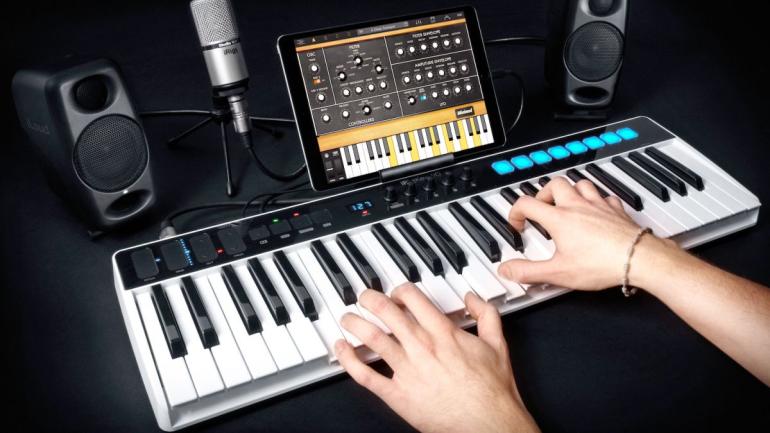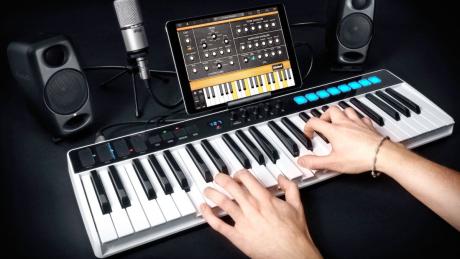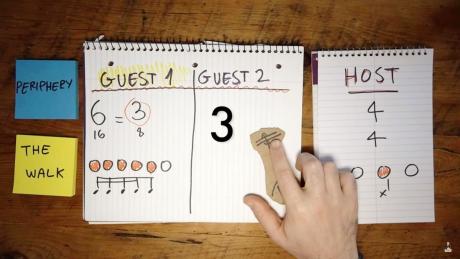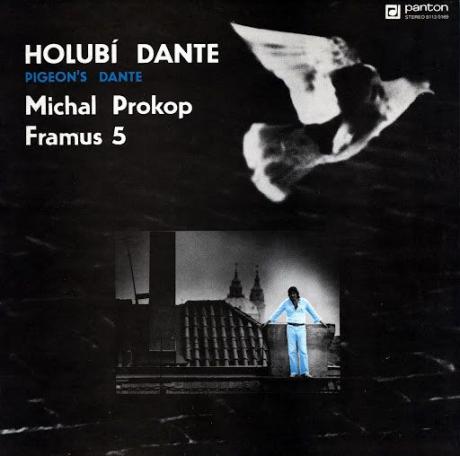Rockové klávesy - Práce s MIDI kontroléry

Greetings, readers! Welcome to another edition of Rock Keyboards. This month we are going to talk about using MIDI controllers and comparing them to hardware synths noticing the strengths and weaknesses of both. In NYC, I use almost all hardware synths and when I travel to Europe on tour, I almost always use MIDI controllers. My favorite controller is the simple, no frills, 3rd generation M-Audio Oxygen 61. I actually have them
stashed all over the place in the countries I play in. They only cost 100E so I can travel without worrying if my instrument is going to make it there too.
Hardware synths
The best thing about hardware synths is that there is immediate control over the parameters. You need no connections or correct settings in banks to get your sounds working; usually everything is hard wired. They also look cool, especially if you have one of the hip new keyboards. Audio outs are also usually very easy durable and easy. Connections with this type of synth are usually very easy. On the downside, hardware synths are heavy and expensive. If you tour a lot like I do, it’s very tough to get a keyboard and case into an overhead bin on a plane, especially a smaller one. I remember I checked a keyboard in a hard-shell case, and it fell of the luggage cart and was sitting in the middle of the runway. :)
Computer and MIDI controller option
The other option for keyboardists is to have a MIDI controller and a sound source. These days when I travel, this is what I do. I used to take my Hammond keyboards on the road but five of them were broken by mishandling at the airport. What I do now is I leave Oxygen 61 MIDI controllers all over the world in countries that I play in often, so I don'’ have to worry about bringing a keyboard at all. These controllers are very inexpensive (around 100E) so I’m not overly worried if anything happens to them. They are actually very durable too. I once brought one to Spain in a cardboard box. The box was completely smashed but the keyboard was fine! For a sound source, I use my laptop or iPad and use IKMultimedia iRig pro duo as an interface. On the Oxygen 61, I can map the drawbars and knobs to whatever I want. This usually is as easy as Ctrl+clicking the parameter I want to control on the soft synth then moving the knob on the MIDI controller that will be associated with it. The only downside of this rig is that there is a degree of mapping and computer settings you have to know to make your keyboard work properly. Sound is not as immediate on the virtual rigs.

My Thoughts on hardware vs. controller
If I’m home in NYC, there is no doubt that a few sturdy hardware synths, or often even one gets the job done perfectly. I have a Hammond SK1 that is light and has tons of great sounds in addition to great organ sounds that's perfect for almost every gig. For traveling on a plane, I do the exact opposite. I have all virtual stuff and don't have to worry at all even if I’m traveling and something bad happens to the controller, I just get another one and for not much more than an overweight flight case will cost.
Rockové klávesy
Slovníček frází a hudebního žargonu
Vážení čtenáři, milovníci klapek a klapiček, a dnes hlavně vy, kdo vedle kláves ovládáte také tlačítka, táhlíčka a páčky a nebojíte se MIDI! V listopadovém vydání Rockových kláves nás Brian provede úvahami na téma hardwarových syntetitorů a MIDI kontrolérů. Z textu jsem opět vybral sedm výrazů. Snad jsem se ve výběru trefil a slovníček vás zaujme. Pěkné čtení!
Frills: V překladu volán, fiží, přeneseně ozdoba. V článku Brian píše, že jeho nejoblíbenější kontrolér je nekomplikovaný M-Audio Oxygen 61 třetí generace, který je bez zbytečných parádiček a serepetiček.
Stashed: Jak už jsme zvyklí, toto slovo může být podstatné jméno (stash), nebo sloveso (to stash). Znamená skrýš a schovat (tajně, na tajném místě) nebo ukrýt. Pozor, schovat se je v angličtině jiné sloveso (to hide).
Going to make it there too: Tady jde o frázové sloveso make. Make jistě známe v nejběžnějším významu udělat. Ale ve spojení „something (going to) make it somewhere“ se význam posouvá a spojení znamená, že něco někam doputuje, že tam zvládne doputovat.
Immediate: Znamená bezprostřední, okamžitý. V článku Brian odkazuje k tomu, že u hardwarových syntezátorů se můžeme spolehnout na okamžitou reakci na změnu parametrů, protože nepotřebujeme žádná propojení ani nastavení.
Hip: Znamená samozřejmě část těla - bok. Ale v neformální řeči také něco, co je módní, aktuální, co vypadá parádně. Co je, jak se třeba dříve říkalo, hustý. Možná by se dneska řeklo cool (kůl? :-))
Overhead bin: Cestující muzikanty toto spojení jistě nezaskočí, ano, správně, jde o kabinové skříňky nad hlavami pasažérů. Kam se obvykle, jak Brian píše, klávesy nevejdou.
Mishandling: Tady jde o ukázku slova, které se musí do češtiny překládat opisem. To handle je zacházet, s něčím manipulovat. Předpona mis- označuje negaci, třeba misunderstanding znamená nedorozumění. V článku Brian píše, že patery jeho Hammondy byly při cestách poškozeny, protože - a můžeme přeložit volněji a hovorově - s nimi někdo zacházel jako prase.




